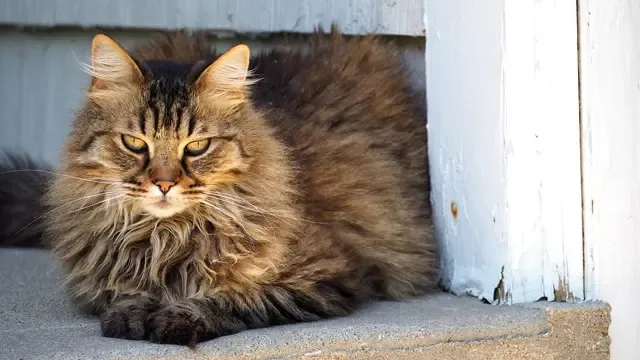When it comes to cat hairballs there is very little any owner can do except clean the mess and hope for the best. However, like most common cat ailments, the best approach to treatment is always prevention.
Cat hairballs in general are not cause for concern. Most cats can deal with them on their own by either passing them through in their litter boxes or by vomiting occasionally. This of course is normal, but can be incredibly unpleasant for both the cat and owner.
Avoiding cat hairballs
Avoiding cat hairballs is not difficult. One of the most important steps an owner can take to decrease the number of incidences is to groom their cat regularly. Hairballs are a direct side effect of self-grooming and cleanliness, but if a cat has been brushed and trimmed there is bound to be less hair to ingest and as a result less hairballs to clean up.
Another great way to prevent cat hairballs is to promote a healthy, high fibre diet. Feeding a cat a balanced diet will not only improve digestion but also help their body to rid itself of ingested hair through regular bowel movements.
In addition to grooming and diet an owner can also consider purchasing an over-the-counter hairball remedy from their local pet store. These inexpensive treatments are effective and can help a cat to digest hair as well as help soften stool and promote regularity.
Some home remedies have also been known to eliminate cat hairballs. A popular example is petroleum jelly, which can be given to a cat in small amounts to lubricate the digestive system and help to pass hair through the anal opening.
As mentioned above, cat hairballs in most cases are normal and should not require a visit to the vet. However, if hairballs occur frequently and a cat shows signs of discomfort or illness then the ingested hair may have caused a blockage in the digestive tract. If this is the case then a vet should be contacted as soon as possible.

